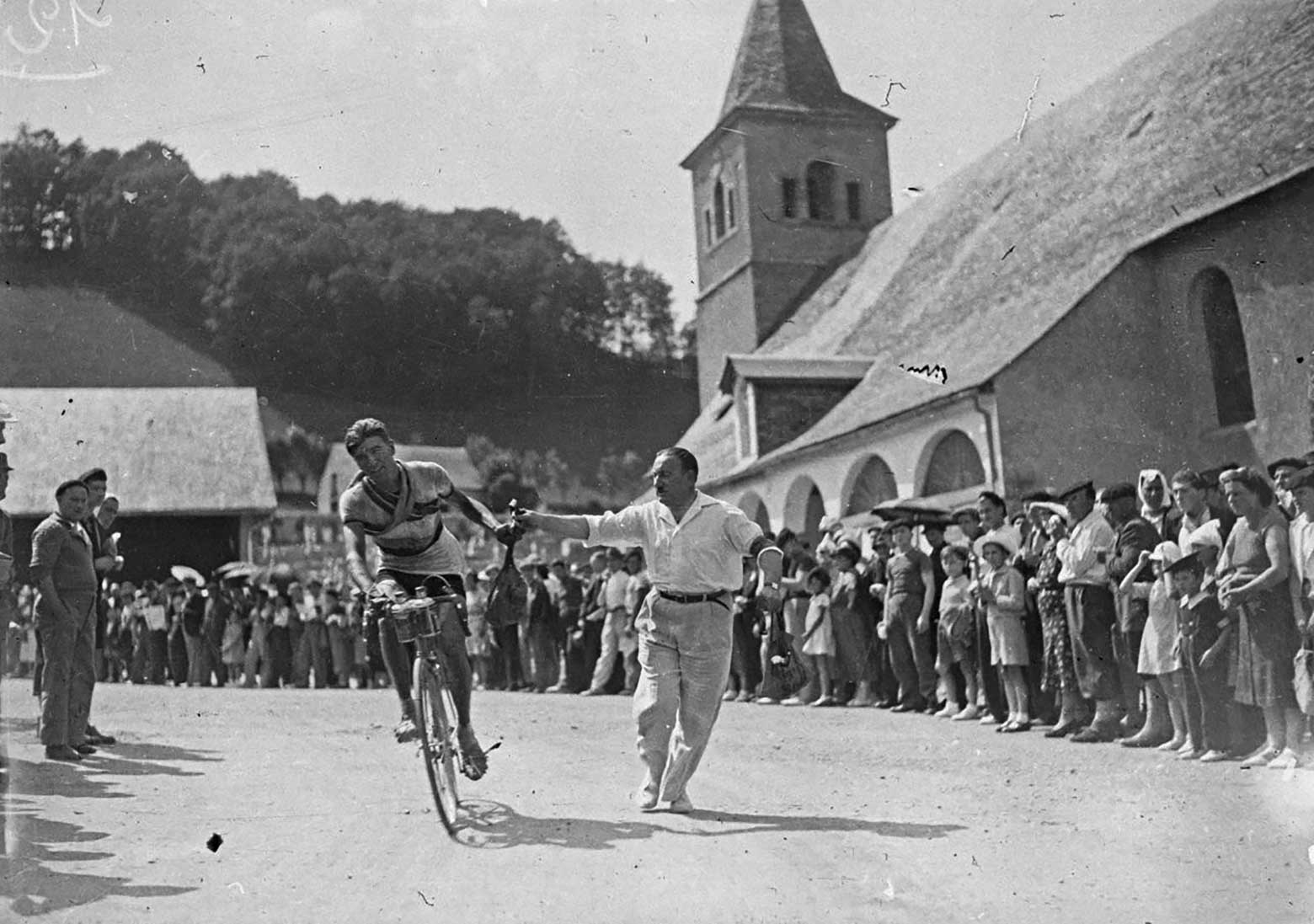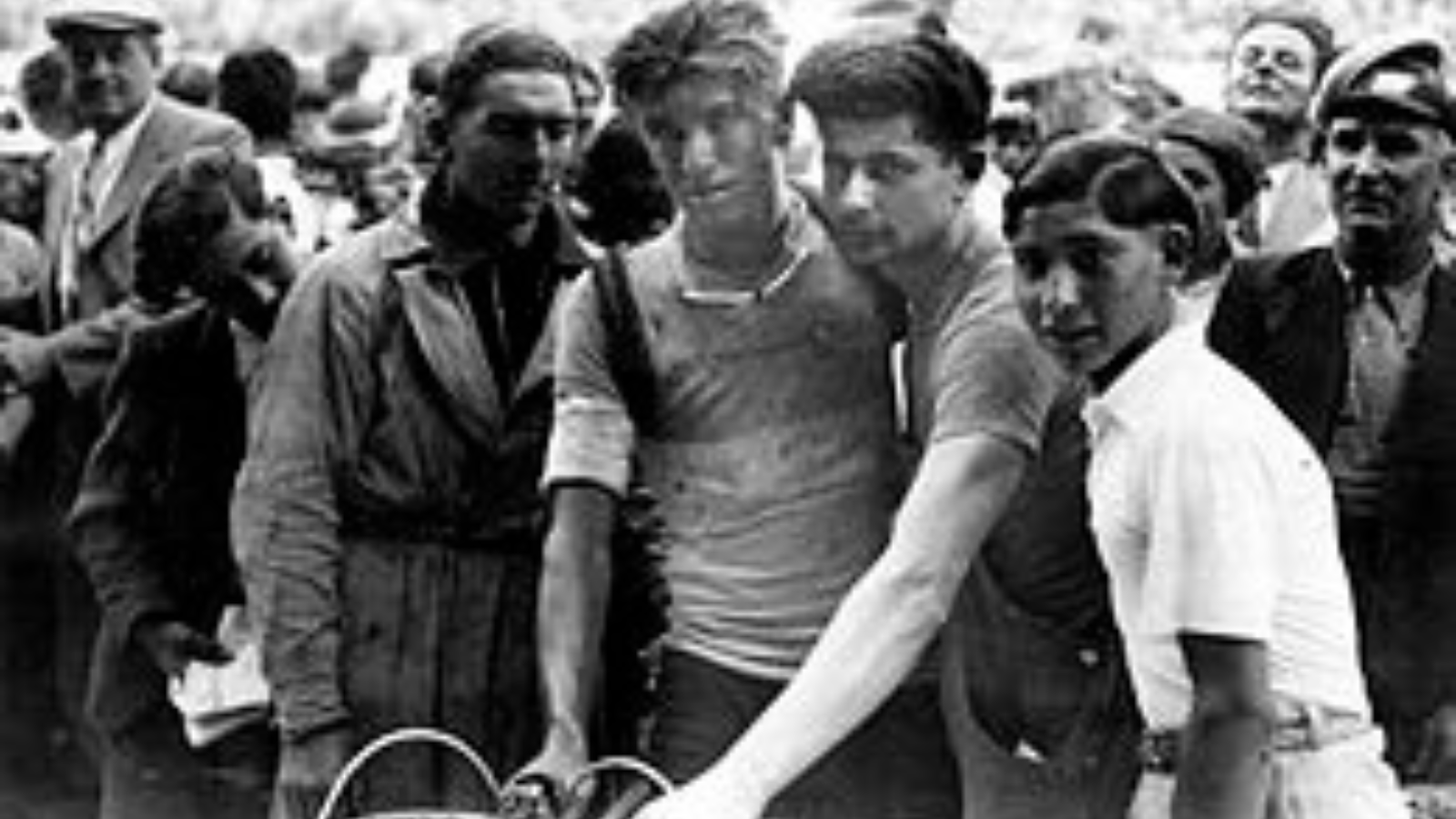You would never guess in what kind of stage the first Dutch Tour de France stage winner, Theo (Theofiel) Middelkamp (1914-2005) gained his victory. In a mountain stage in the Alps, including Télégraphe, Galibier and Lautaret. Considering that even in the early 1950s, when Wim van Est, the first Dutch cyclist to wear the yellow jersey crashed badly on Aubisque, there was lot of talk about his inexperience in high mountains because of coming from a country being predominantly flat, this seems to have been a great achievement for Middelkamp.
Nevertheless he was a strange figure. As a child, he wanted to be a footballer, but after realising, that he would earn significantly less money by that than by being a professional cyclist, he changed his mind. It sounds a bit strange for us, here in the 21st century, but at the turn of the 19th and 20th centuries, and, as the the career of Middelkamp suggests, even a few decades later, cycling as professional sport had much bigger marketing value than football.

Theo Middelkamp rode Tour de France three times. In 1936 he won a hard stage in the Alps (see another post about that stage here) despite, apparently, never seeing high mountains before, and finished 23rd in the general classification. Next year he had to abandon the race, but a year later he came back and won a stage again. At the feet of the Pyrenees. He earned 5000 francs, but he would have earned much more if he would have participated in cycling events in Flanders (Belgium), so he never chose to ride Tour de France again. His famous quote was
I cannot live on fame and honour.
Money played a very important role in Middlekamp's mind. During World War II he earned it by smuggling. (He was caught and inprisoned for a short time) After the war he came back to racing and became the first Dutch World Champion in 1947.
He has retired from professional cycling in 1951.
